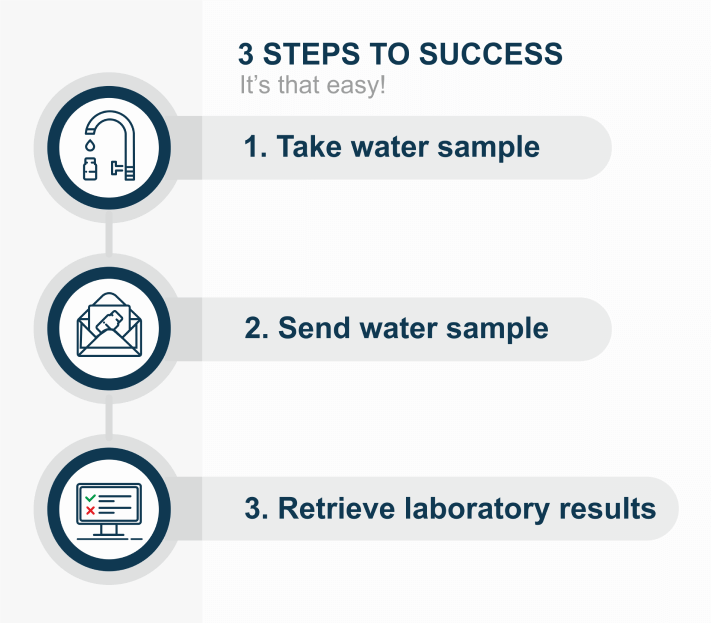PROFESSIONAL ANALYSIS
Our analyses are carried out in a DAkkS-accredited lab in Germany, which is equivalent to a UKAS accreditation.
As the Drinking Water Inspectorate strictly regulates UK drinking water, it is generally of very good quality. It is tested almost daily by the water company in your area before it goes on its long journey to your house pipes. However, the waterworks' responsibility ends at your house connection. From here, you (the owner) or the landlord are responsible for the house's water quality.
Not only is the quality of your tap water paramount for drinking for hydration, but it is also particularly relevant if you use a water carbonator, such as SodaStream or a coffee machine.
Harmful substances such as lead, copper and nickel can leak into your drinking water through your pipes or, most frequently, the tap fittings. Drinking these harmful toxins can lead to numerous illnesses and diseases. So if you are unsure about the quality of your tap water, you should conduct regular water analyses in a professional laboratory.

Legionella is a type of bacteria that can cause Legionnaires' disease, a severe form of pneumonia, and a milder flu-like illness called Pontiac fever. It is commonly found in freshwater environments, such as lakes and rivers. Still, it can also thrive in human-made water systems, including hot water tanks, cooling towers, and plumbing systems.
Legionella bacteria can multiply and spread through aerosolized water droplets, which humans can inhale, leading to infection. It is crucial to properly manage and maintain water systems to prevent the growth and transmission of Legionella and regularly test for its presence to ensure the safety of water supplies and prevent potential outbreaks of Legionnaires' disease.

Legionella bacteria can enter the human body when contaminated water containing the bacteria is inhaled or aspirated (inhaled into the lungs or swallowed into the digestive system). Legionella does not typically spread from person to person. The most common infection route is inhaling tiny water droplets or mist containing the bacteria, which can occur when using showers, hot tubs, or near cooling towers. When these aerosolized droplets are inhaled, the bacteria can reach the lungs and cause infection. It is also possible to acquire Legionnaires' disease by aspirating contaminated water, such as when drinking water "goes down the wrong pipe" and enters the lungs instead of the stomach. Not everyone exposed to Legionella bacteria will develop illness, as susceptibility can vary based on individual factors, such as age, overall health, and immune status. Proper management and maintenance of water systems and regular testing for Legionella are essential to prevent infection and ensure the safety of water supplies.